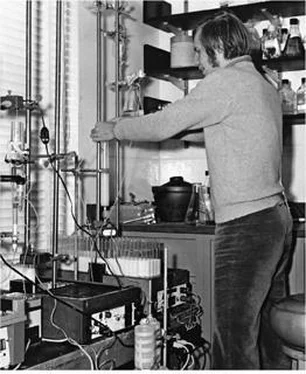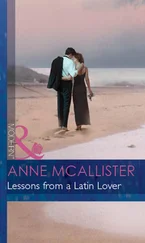James Watson - AVOID BORING PEOPLE - Lessons from a Life in Science
Здесь есть возможность читать онлайн «James Watson - AVOID BORING PEOPLE - Lessons from a Life in Science» весь текст электронной книги совершенно бесплатно (целиком полную версию без сокращений). В некоторых случаях можно слушать аудио, скачать через торрент в формате fb2 и присутствует краткое содержание. Жанр: Биографии и Мемуары. Описание произведения, (предисловие) а так же отзывы посетителей доступны на портале библиотеки ЛибКат.
- Название:AVOID BORING PEOPLE: Lessons from a Life in Science
- Автор:
- Жанр:
- Год:неизвестен
- ISBN:нет данных
- Рейтинг книги:5 / 5. Голосов: 1
-
Избранное:Добавить в избранное
- Отзывы:
-
Ваша оценка:
- 100
- 1
- 2
- 3
- 4
- 5
AVOID BORING PEOPLE: Lessons from a Life in Science: краткое содержание, описание и аннотация
Предлагаем к чтению аннотацию, описание, краткое содержание или предисловие (зависит от того, что написал сам автор книги «AVOID BORING PEOPLE: Lessons from a Life in Science»). Если вы не нашли необходимую информацию о книге — напишите в комментариях, мы постараемся отыскать её.
AVOID BORING PEOPLE: Lessons from a Life in Science — читать онлайн бесплатно полную книгу (весь текст) целиком
Ниже представлен текст книги, разбитый по страницам. Система сохранения места последней прочитанной страницы, позволяет с удобством читать онлайн бесплатно книгу «AVOID BORING PEOPLE: Lessons from a Life in Science», без необходимости каждый раз заново искать на чём Вы остановились. Поставьте закладку, и сможете в любой момент перейти на страницу, на которой закончили чтение.
Интервал:
Закладка:
Over the fall of 1964, a growing faculty consensus, strongly encouraged by Franklin Ford, emerged for placing the long-running undergraduate concentration in biochemical sciences under the jurisdiction of the Committee for Higher Degrees in Biochemistry. Most biochemical science majors historically aimed for medical school, and many members of its Board of Tutors, correspondingly, had medical school affiliations. In 1958, the microbiologist Alvin Pappenheimer came to Harvard from New York University Medical School to become the board's head tutor, replacing the veteran John Edsall. Now Pap wanted to resign since he had just been appointed master of Dunster House.
The proposed merger would allow the junior faculty members to rotate in and out of the head tutor position without the dean's having to create a tenure slot for each new appointee.To win support from those who wanted a separate biochemistry department created immediately, Franklin Ford gave permission to start a search for a senior biochemist or molecular biologist, a boon to these disciplines. Equally important, he and President Pusey promised a new science building to be sited between the Converse Memorial Lab and the Biological Laboratories. The official formation of the new Committee on Biochemistry and Molecular Biology (BMB) was announced at the February 1965 meeting of the Faculty of Arts and Sciences. Its new chairman was to be John Edsall, signifying to all a seriousness of commitment.
Widespread enthusiasm then existed for bringing the Canadian-trained M.D. David Hubel, who was associate professor of neurophysiology at Harvard's Medical School, to the Biology Department with tenure. Current experiments by Hubel and his Swedish-born collaborator Torsten Wiesel were radically advancing knowledge of how the visual cortex is organized. To allow their collaboration to continue, Don Griffin proposed giving Wiesel an appointment as a senior research associate in biology. Especially impressed by their accomplishments was Francis Crick, who now used his role as a nonresident fellow of the Salk Institute to meet frequently with Hubel and Wiesel in La Jolla. Attracting Hubel and Wiesel would be a massive step forward for the Biolabs, stamping it indelibly as a place of high-level biology. Speculation already existed that they were bound to receive a joint Nobel Prize. Common sense thus dictated that Wiesel also be offered a tenured position. But we were told that the dean could not now create a new tenured slot for him, especially since he was said to have no interest in teaching undergraduates.
I soon had an opportunity to become better acquainted with Hubel and Wiesel through a late winter visit to the Salk Institute in La Jolla. The occasion for coming to the San Diego region was a three-day gathering on the role of genes in the immune response, held at Warner Hot Springs near Palomar Mountain and its big telescope. There Norbert Hilschmann from Lyman Craig's lab at Rockefeller University put
up a slide showing amino acid sequences from antibody-like Bence-Jones proteins found in victims of multiple myeloma. He took care not to let this slide stay on the screen long enough for its data to be copied down by his rival at Rockefeller, Gerry Edelman, then also in the audience. Enraged by this act of bad form, Max Delbrück rose and denounced Hilschmann. But those of us who knew Gerry well could see Hilschmann was in a no-win situation.In deciding at the last moment to extend my California visit for an additional week, I would be violating a long-standing Arts and Sciences rule that during term the president and fellows must approve all visits of more than a week away from Harvard. But I was not scheduled for lectures during the time in question, and asking at the last moment for approval might delay my departure to Warner Hot Springs. So I decided simply to tell Don Griffin that I was to be away for some two weeks. The thought never occurred to me that he would see the need to tell Franklin Ford. But this he did, and I only learned of it at the Salk Institute in the middle of watching Hubel and Wiesel in action. They were among the first to know of my instant rage when I got a phone call from Don telling me that President Pusey wanted me immediately to return to Harvard. I was being treated like an AWOL soldier. Deeply upset, I told Don that while Pusey might get satisfaction from humiliating me, he was giving Hubel reason to wonder why he should consider giving up Harvard Medical School, where he could travel as he saw fit, to move to the Faculty of Arts and Sciences and be governed by rules more befitting teenagers than serious scientists. Don phoned the next morning telling me I could stay. Until then, only the compound curse “F Harvard and f Pusey” went through my brain, and I vocalized it openly many times as the day turned to night.
Upon my return to Harvard, Paul Doty gave me the dope that Kenneth Galbraith had also had a run-in with Pusey over traveling during term. Denied a request to spend a winter without teaching commitments skiing in Gstaad, Ken obtained a doctor's note that the break was medically necessary to prevent undue stress on his circulatory system. Not wanting to risk a fight that Ken might make public, Pusey caved in. The Harvard Corporation was still embarrassed about
almost having blackballed Ken after World War II for supposed left-wing economics. I feared the line Pusey had taken with me was his way of reasserting authority over his faculty. Needless to say, I was apprehensive on receiving Franklin Ford's July 1 note concerning my salary for the coming year. To my relief, I got a $1,000 increase.Three months earlier, I had been even more gratified to read another letter from Ford stating that Mr. Pusey and the Corporation wanted to reconsider aspects of policies concerning travel and salaries. They wanted the matter studied over the next year by a faculty committee whose work would be highly confidential. Would I consider chairing the committee, despite my plan to be away for much of the next year? I felt immensely vindicated and phoned Paul Doty. To my surprise, he did not seem happily surprised at the Corporation's turnabout. It was only several hours later, on my way to Paul's house, that I looked again at Ford's letter and suddenly noted it was dated April 1, 1965. Meeting his friend Dorothy Zinberg at the gate, I saw clearly that we were victims of the same hoax. I should have known that Harvard never would have changed course so dramatically, but I couldn't for the life of me work out how Paul had obtained the University Hall stationery.
At no time did my run-in with President Pusey make me want to leave Harvard. Nowhere else was I likely to get such a caliber of graduate students. Their latest triumphs involved besting two labs at Rockefeller University in understanding key features of protein synthesis. For more than a year, Norton Zinder's Rockefeller group and my RNA phage group had raced each other to find out how so-called nonsense bacterial suppressor strains misread mutant chain-terminating signals to generate biologically active polypeptide chains. By late spring Gary Gussin and Mario Capecchi wrote up for publication in Science that mutant tRNA molecules read “nonsense” signals as “sense” signals, thus winning the race.
Less than six months later, Capecchi and Jerry Adams showed that formyl methionine tRNA molecules initiate the synthesis of bacterial protein chains. Earlier I visited Rockefeller University to see whether Fritz Lipmann's big lab was following up the discovery of f-met-tRNA,
made some months before in Denmark. Its existence might explain why so many bacterial proteins had methionine as their terminal amino acids. But Fritz was not thinking along these lines, and I left New York City knowing Jerry Adams would have no competition studying how protein synthesis starts. Soon Jerry discovered how to radioactively label f-met-tRNA molecules, allowing him and Mario to label the formyl groups at the ends of RNA phage proteins made in vitro. Their experimental results were sent off to the Proceedings of the National Academy just before I flew to London to spend December 1965 in Cambridge.By then, virtually everybody in the Biological Laboratories knew that their best interests would be served if the BMB Committee rapidly converted into a genuine department. Uncertainty about being allocated space was causing qualms for prospective faculty recruits. Keith Porter had taken over as chairman after Don Griffin's three-year stint. Only months before the changeover Griffin had unexpectedly announced that he was resigning to move to Rockefeller University and its field station in Millbrook, some fifty miles north of New York City. In a panic, the Biology Department offered his tenured slot to Edwin Furshpan, who studied invertebrate synapses at Harvard Medical School in a lab nearby that of David Hubel and Torsten Wiesel. Behind this hurried offer were hopes that it would make David Hubel more inclined to move to Cambridge.
Читать дальшеИнтервал:
Закладка:
Похожие книги на «AVOID BORING PEOPLE: Lessons from a Life in Science»
Представляем Вашему вниманию похожие книги на «AVOID BORING PEOPLE: Lessons from a Life in Science» списком для выбора. Мы отобрали схожую по названию и смыслу литературу в надежде предоставить читателям больше вариантов отыскать новые, интересные, ещё непрочитанные произведения.
Обсуждение, отзывы о книге «AVOID BORING PEOPLE: Lessons from a Life in Science» и просто собственные мнения читателей. Оставьте ваши комментарии, напишите, что Вы думаете о произведении, его смысле или главных героях. Укажите что конкретно понравилось, а что нет, и почему Вы так считаете.












